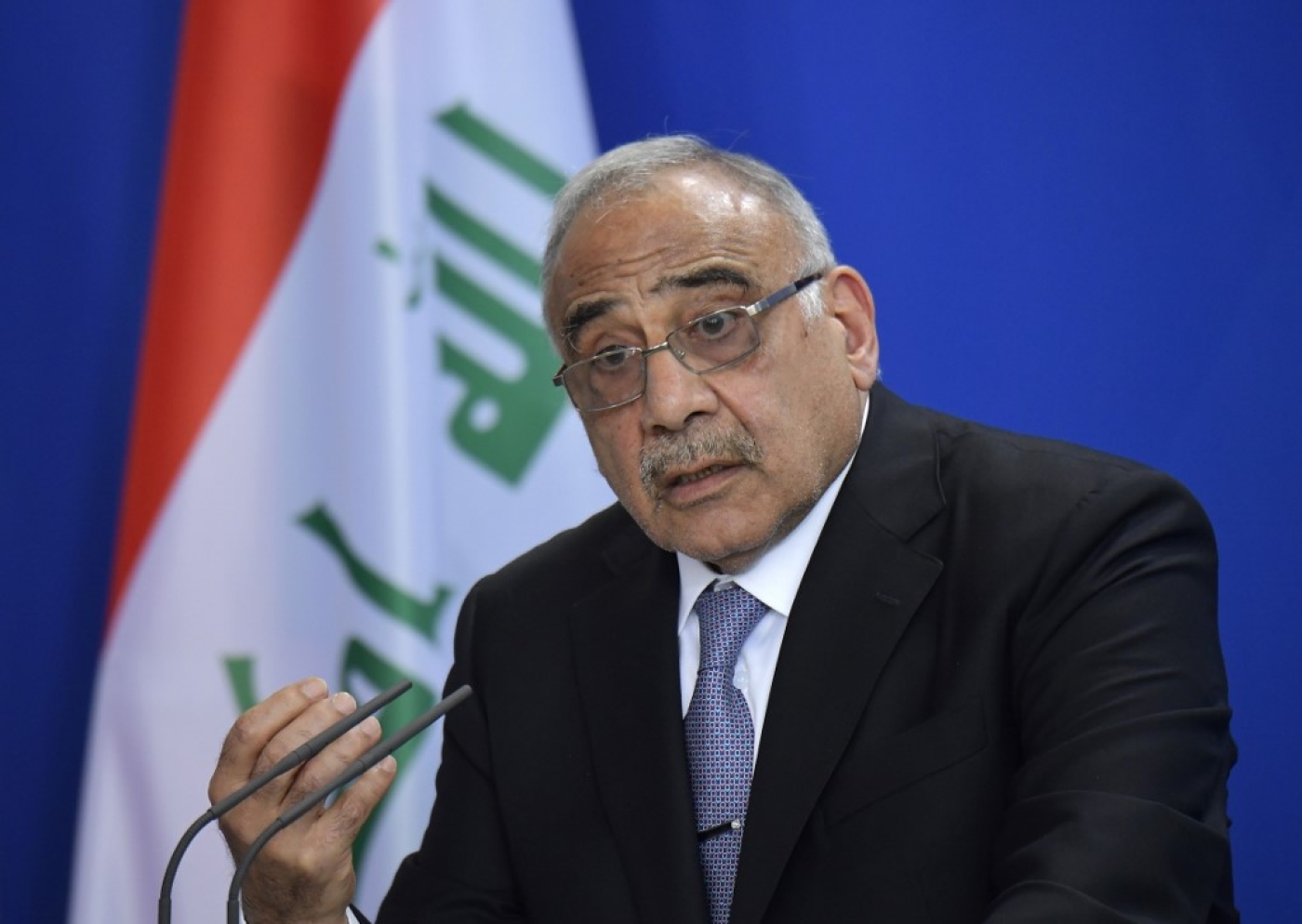Iraqi prime minister says he will resign
The announcement from Adel Abdul Mahdi's office was met with cheers from protesters in Baghdad's Tahrir Square

Parliament is to convene an emergency session on Sunday to discuss the crisis (AFP)
Iraqi Prime Minister Adel Abdul Mahdi said on Friday that he would present his resignation to parliament so lawmakers could choose a new government, according to a statement from his office.
Abdul Mahdi's decision came in response to a call for a change of leadership by the country's top Shia cleric Grand Ayatollah Ali al-Sistani, the statement said.
"I will submit to the esteemed parliament a formal letter requesting my resignation from the premiership," Abdul Mahdi said.
The announcement was met with cheers from protesters in Baghdad's iconic Tahrir Square.
The statement did not say when he would resign. Parliament is to convene an emergency session on Sunday to discuss the crisis.
The prime minister's decision came as the death toll in Iraq from weeks of anti-government unrest rose on Friday to more than 400 people, mostly unarmed protesters, a Reuters count based on police and medical sources showed.
Scores of people have been shot dead by security forces across Iraq since protesters torched the Iranian consulate in the southern city of Najaf late on Wednesday in the latest escalation in the violence.
The deaths bring the total nationwide to 408 since 1 October, according to Reuters. More than 15,000 people have also been wounded according to the AFP news agency.
Sistani call
Earlier on Friday, Sistani had urged parliament to drop its support for the current cabinet following the unrest.
"The parliament, from which this current government is drawn, is asked to reconsider its choice in this regard and act according to Iraq's interest... [to] preserve the blood of its children," Sistani said in a weekly sermon delivered by his representative in the holy city of Karbala.
Sistani said attacks on peaceful protesters were "forbidden" but also urged demonstrators to reject violence.
Protesters "must not allow peaceful demonstrations to be turned into attacks on property or people", he said.
Iraq's "enemies and their apparatuses are trying to sow chaos and infighting to return the country to the age of dictatorship... everyone must work together to thwart that opportunity", Sistani said, without elaborating.
Clashes between protesters and security forces broke out early on Friday in Nasiriyah, killing three protesters and wounding several people, hospital sources told Reuters.
Unemployed youths
The protests, which began in Baghdad on 1 October and have spread throughout southern cities, are the most complex challenge facing the Shia-dominated ruling class that has controlled state institutions and patronage networks since the 2003 US-led invasion that toppled longtime Sunni ruler Saddam Hussein.
Protesters are mostly unemployed youths who are demanding the departure of Iraq's entire political elite.
Security forces have used live ammunition, tear gas and stun grenades against mostly unarmed protesters.
Some demonstrators have lobbed petrol bombs, bricks and fired slingshots at police.
In a statement on Thursday evening, the influential Shia cleric Muqtada al-Sadr called on the government to resign immediately or it would mean "the beginning of the end of Iraq", warning that the country could turn into Syria if the problems were not addressed.



